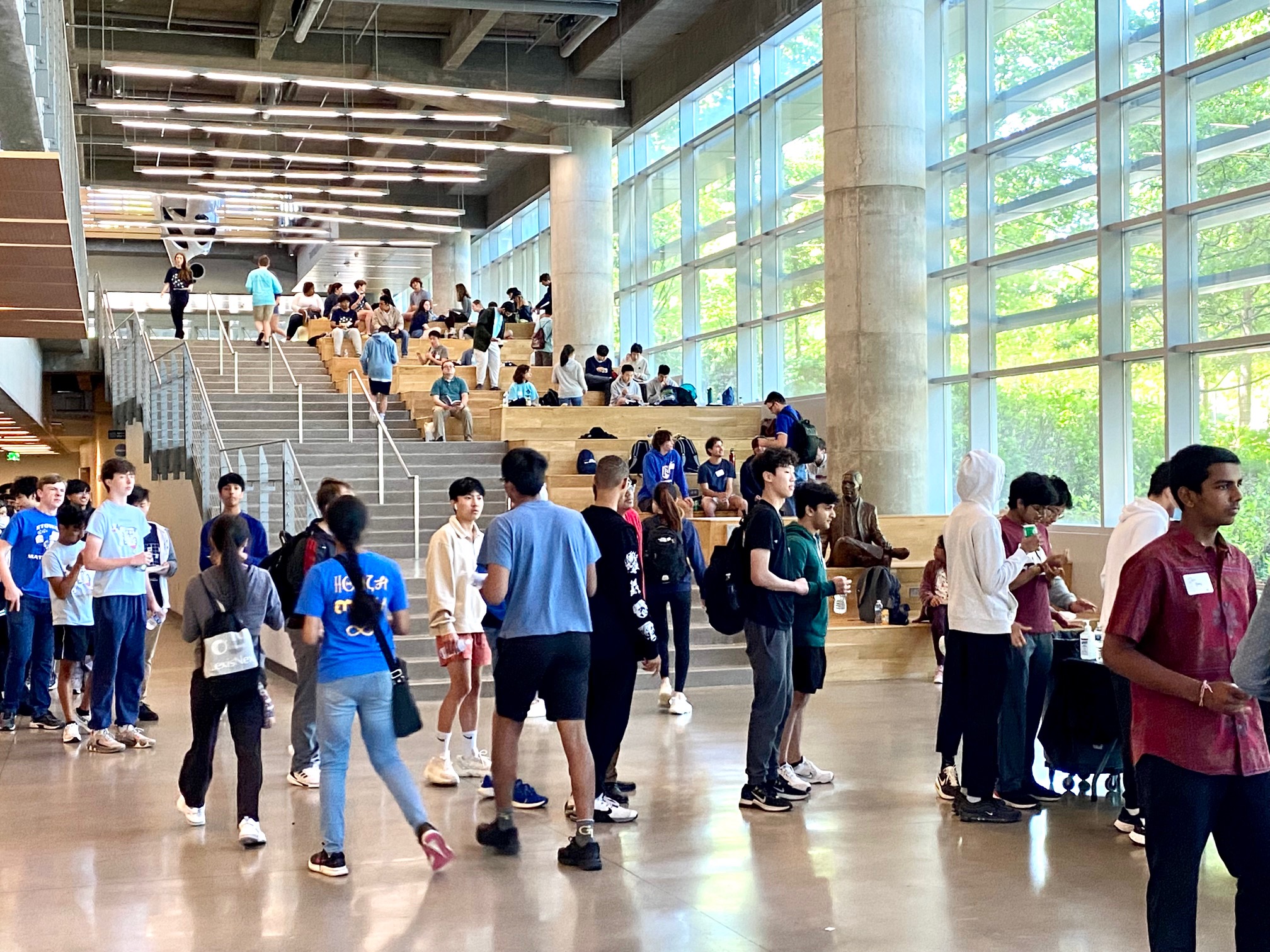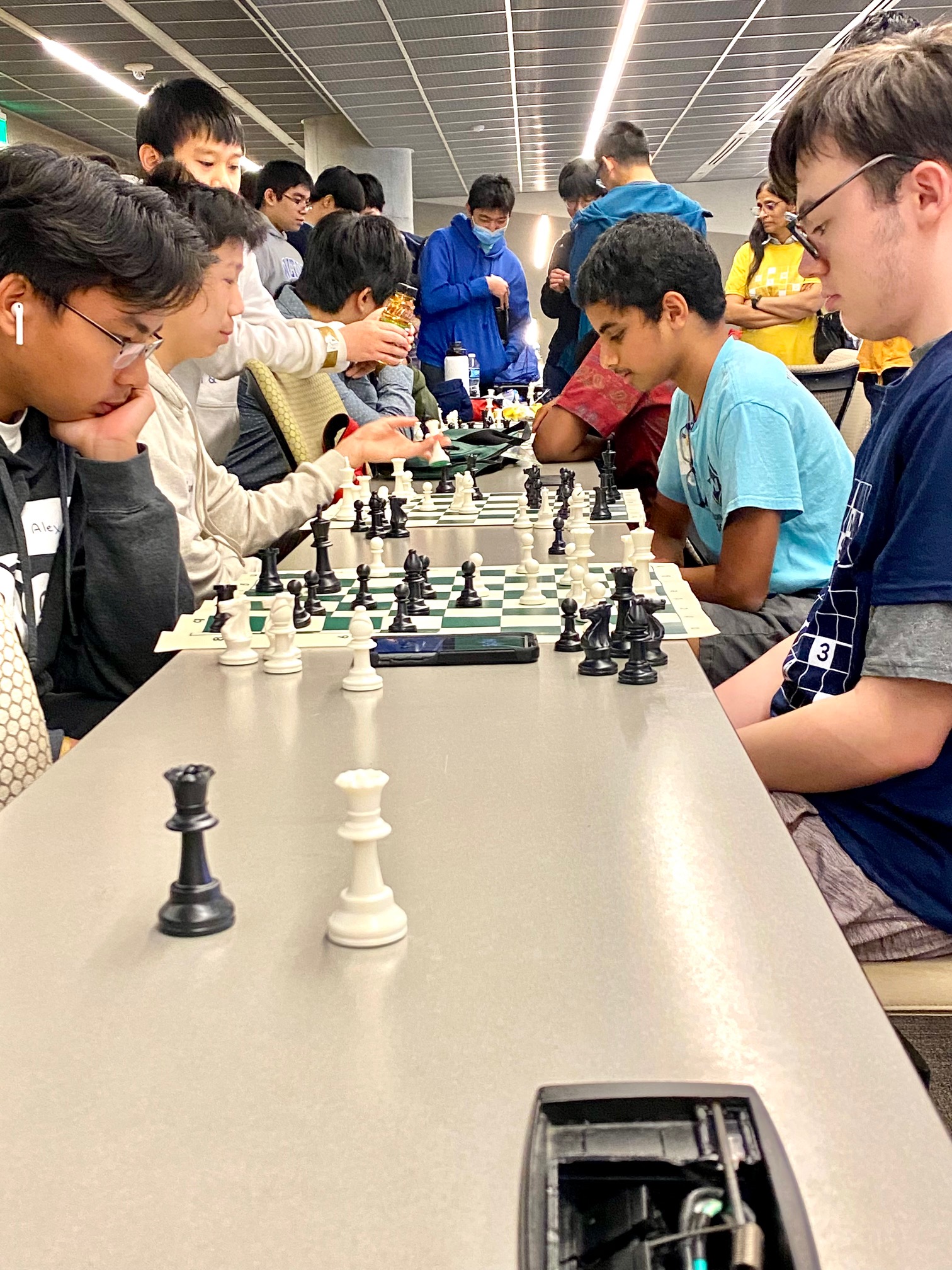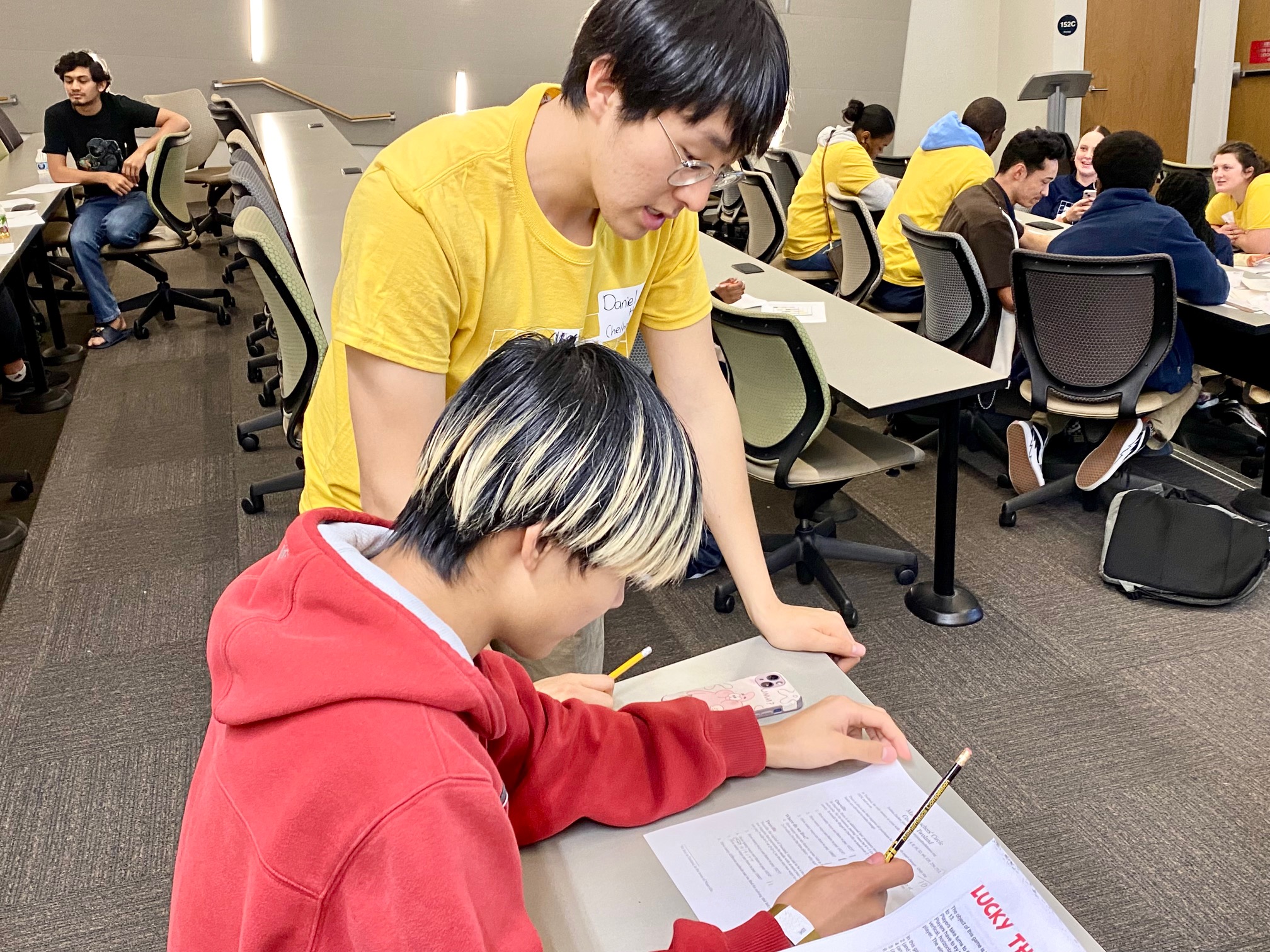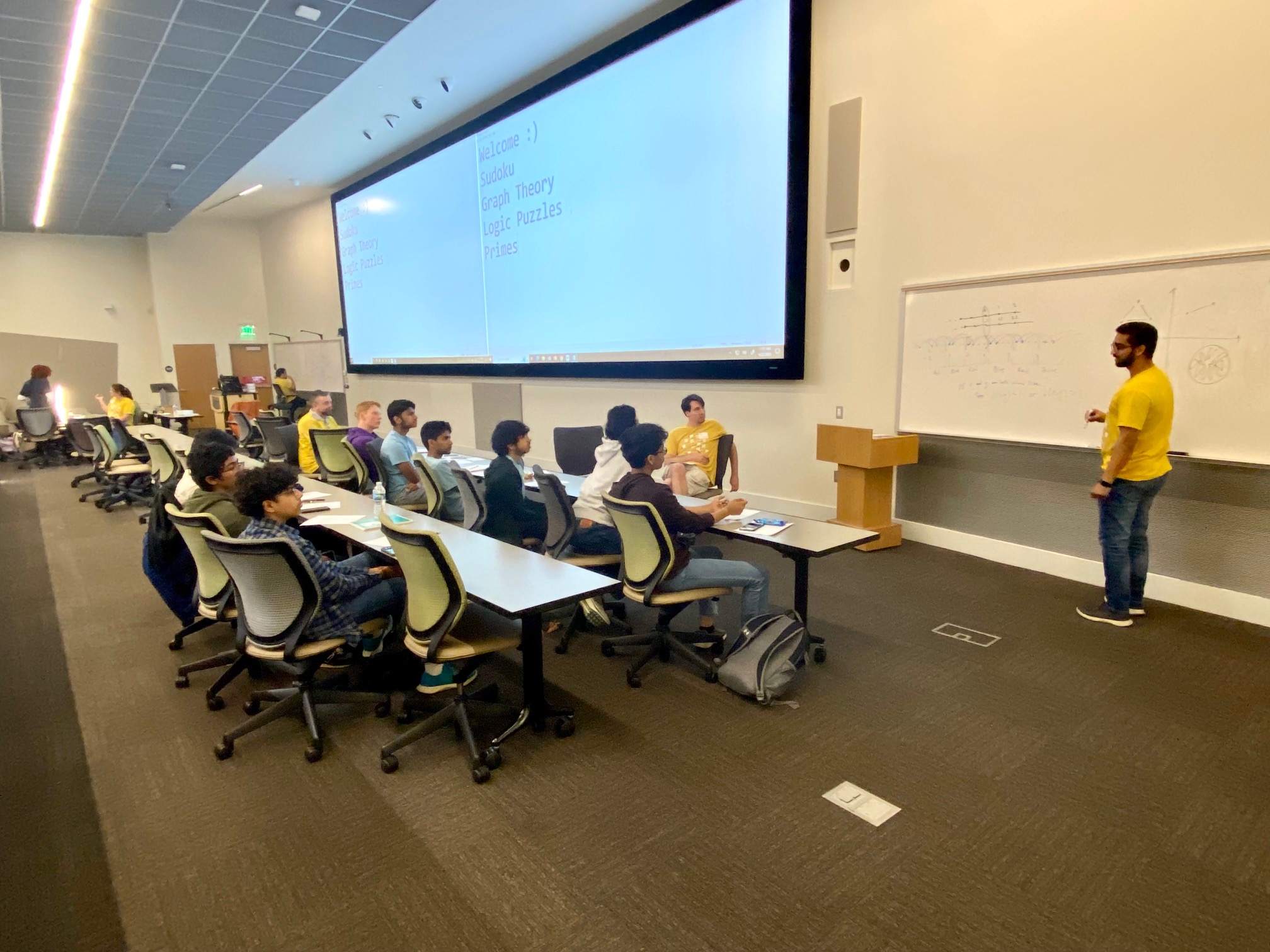- You are here:
- Home
April 27, 2023
Ghenerune Ekuerhar, a ninth-grade student at Kennesaw Mountain High School, is focused intently on a puzzle at Georgia Tech’s High School Math Day, held April 22 at Clough Undergraduate Learning Commons.
“It's pretty fun,” she says, looking up from the logic challenge she’s working to solve. “The first test, I was racking my brain trying to think of answers. But I really like these activities, because I have to think outside the box for a lot of them.”
This year, organizers with the School of Mathematics took a similar approach to reimagining and promoting the event — the first one held in person since Covid hit in 2020.
Formerly called High School Math Competition Day, a tradition at Georgia Tech since 1958, the annual event is now simply known as High School Math Day. Some 250 students, parents, and teachers attended this year’s event.
It’s an effort to get more students, including those from historically marginalized and underrepresented communities, thinking about math in a different way, and to have some fun and meet new friends and mentors along the way.
“With the pandemic forcing a pivot in style for the competition, it made sense to relaunch the event in person with different foci and ambitions,” said Michael Wolf, professor and school chair. “Part of the day still revolves around a competition by talented high school students who have learned a lot of math in their schools competing as individuals, but there is plenty of fun and challenging mathematics that does not require a lot of background and can also be done productively in groups.”
With that in mind, the School reimagined the day around a variety of math activities, from group sessions and an algebra exam, to logic-based games and puzzles.
In one early afternoon session, School of Math graduate students were giving a mini-lecture on combinatorics, the field of math that deals with counting, arranging, and combining numbers. In another part of the room, students were lined up playing chess, Sudoku, board games, and puzzles.
“They don’t have stuff like this at other competitions,” said Yinuo Song, an 11th grader at the Gwinnett School of Mathematics, Science, and Technology. “I'm personally more into this type of logic stuff than algebra. So I think it's pretty fun to expand my knowledge and interest.”
Song also learned about how mathematics is involved in how nature chooses its shapes. Wolf enjoyed giving that presentation to the attendees. “And there was an amazing early afternoon scene with hundreds of students in Clough gathered around tables working on problems as a team,” Wolf said. “This is modern mathematics in action.”
The attendees came from 42 schools around the state. High School Math Day organizers were determined to boost the numbers of students from a broader stretch of communities. “We wanted to broaden the appeal, make this a more inclusive event,” said Trevor Gunn, Ph.D. student in the School of Mathematics and Math Day co-organizer along with Evelyne Smith-Roberge and Wade Bloomquist, both visiting assistant professors. “We advertised to majority-minority counties in the area. And Atlanta is a very diverse region.”
“We tried to advertise to schools that we normally haven’t advertised to,” added Lea Marzo, Program Operations Director for the College of Sciences’ Center for Promoting Inclusion and Equity in the Sciences (C-PIES), who also worked in School of Mathematics outreach for over eight years before joining the newly created C-PIES earlier this year. “I’ve noticed that there are more students of color here than in the past.”
Teacher Anu Krishna brought four of her students from Cambridge High School in Alpharetta. A first-timer to High School Math Day, Krishna was impressed with the campus and the way the event was organized.
“I wanted to bring the students who have actually loved this experience to go back and explain it better,” she said. “But we do have a bunch of other members who will probably represent us next time. I’m looking forward to that.”
Wolf added that the High School Math Day rebranding also resulted in some attendance growth, “and a lot of fun — for a lot of students. Going forward, we hope the word gets out and we are able to grow the participation to as many high schools as we can, with activities that are accessible and inspiring to high school students of any age, and with any mathematical background.
“After all, for every person, there is a math problem that is fun for them to engage with and then make their own.”
For More Information Contact
Writer: Renay San Miguel
Communications Officer II/Science Writer
College of Sciences
404-894-5209




